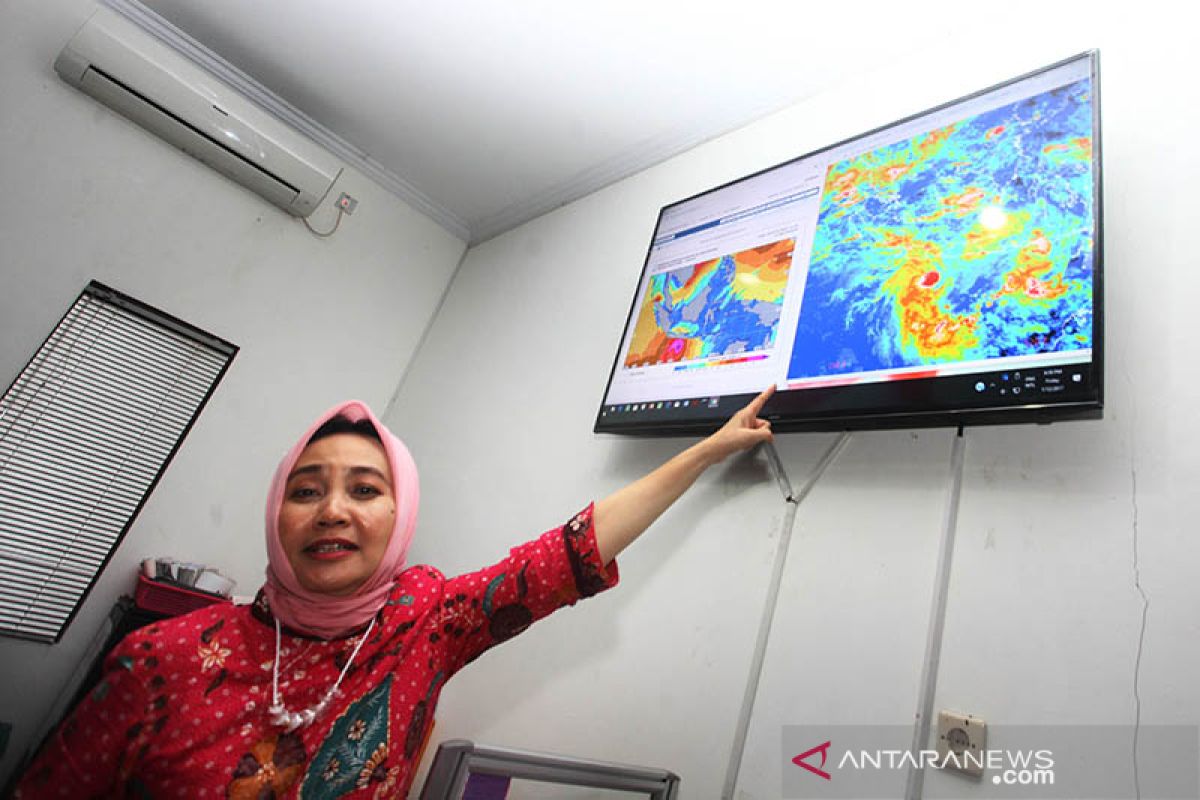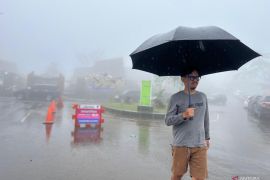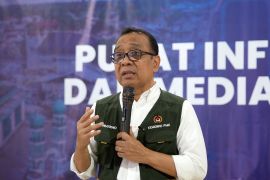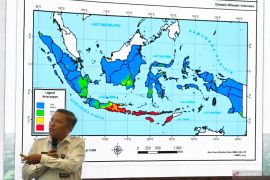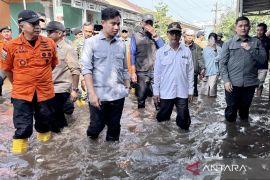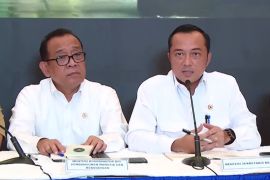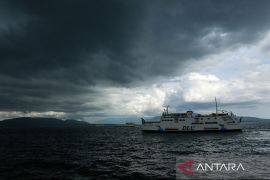Mitigation and adaptation to deal with the (impacts of) climate change necessitate firm political will, as the process should be started from regional leaders and realized in their regional medium-term development planJakarta (ANTARA) - The national Meteorology, Climatology, and Geophysics Agency (BMKG) made an earnest request to regional authorities, currently engaged in various large-scale developments, to commit to mitigating the impacts of climate change.
"Mitigation and adaptation to deal with the (impacts of) climate change necessitate firm political will, as the process should be started from regional leaders and realized in their regional medium-term development plan," BMKG Head Dwikorita Karnawati noted here on Friday.
Karnawati called on district and municipal authorities to prepare themselves to face any effects of climate change, such as tropical storms, flash floods, landslides, strong winds, and drought, that may occur with greater intensity. The BMKG also forecast that the Puncak Jaya glaciers would disappear completely by 2025, she noted.
Related news: Indonesia needs Rp3,779 trillion to tackle climate change: Minister
Karnawati emphasized that mitigation and adaptation were challenging yet the urgent need of the hour. Collaboration and cooperation between the central government and regional authorities are paramount to ensuring that comprehensive actions and policies are adopted.
The BMKG head cited several examples of concrete actions for the authority to take to mitigate the impacts of climate change that encompass the adoption of a sustainable zoning plan, prompt mitigation measures to handle forest fires, and promotion of renewable energy resources and phasing-out of fossil fuels.
"The progress would be ineffective if only one region committed to the mitigation efforts. We need to develop a collective conscience that climate change is an urgent issue, and to this end, urgent actions are necessary. Collaborations with society are also important, and the government should not work alone," Karnawati stated.
Related news: Do not underestimate BMKG's disaster warnings: minister
Highlighting the World Meteorological Organization (WMO) data, Karnawati noted that 2020 was recorded as one of the hottest years ever, while global average temperatures had risen by 1.2 degrees Celsius since the 1850s.
Karnawati noted that the BMKG had also recorded 2020 as the second-hottest year, citing average temperature reports from 91 BMKG stations. The stations also recorded average surface temperature in 2020 being higher by 0.7 degrees as compared to the reference period from 1981 to 2010.
The BMKG head noted that the situation had triggered changes in weather patterns and air temperatures, thereby resulting in an increasing prevalence of hydrometeorological disasters, such as forest fires, that might occur with greater intensity and leading to more carbon emissions.
"I hope those facts would motivate us to mitigate climate change effects together," Karnawati emphasized.
Related news: Presidential Staff Office distributes thousands of free masks
Related news: Health Ministry strategizes administering 300 million vaccine
Translator: Zuhdiar Laeis, Nabil Ihsan
Editor: Fardah Assegaf
Copyright © ANTARA 2021
